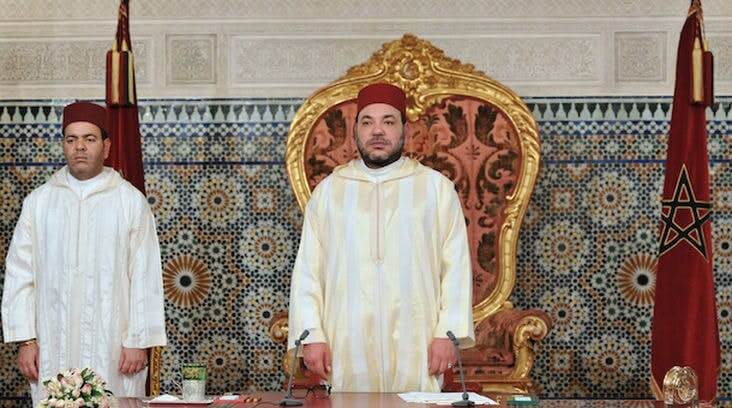NEW YORK – Human Rights Foundation (HRF) strongly condemns Morocco’s continued crackdown on freedom of expression, and urges the authorities to drop all charges against seven human rights activists, including five journalists. This group is facing prosecution for organizing a workshop to promote citizen journalism in Morocco. The activists were scheduled to appear in court on January 27 to face charges that include “threatening the internal security of the state,” a criminal offense punishable with up to five years in prison. The trial, which was initially set to take place on November 19, 2015, was once again postponed to March 23.
“Over the past three years, Morocco has drastically increased its crackdown on free speech. Criticizing the absolutist monarchy continues to be forbidden by law and harshly punished, but now journalists who simply want to report on Morocco’s reality are increasingly targeted and subject to lengthy prison terms and heavy fines,” said Thor Halvorssen, president of HRF. “If Morocco were a genuine constitutional monarchy, citizen journalism wouldn’t be punished, corruption exposés would be welcomed, and these seven human rights activists wouldn’t be facing criminal charges,” added Halvorssen.
Mohamed Essabr, Samad Iach, Hicham Mansouri, Hisham Almiraat, and Maati Monjib were accused of organizing and participating in a workshop that trained people to use the smartphone app StoryMaker — used for citizen journalism in countries like Egypt, Iraq, and Tunisia — which allows users to assemble and publish stories as well as share them securely via mobile phones. The training sessions were conducted with the support of Dutch nongovernmental organization Free Press Unlimited, which is also one of the developers of the app. The five have been charged with “threatening the internal security of the state,” a criminal offense under article 206 of the Moroccan penal code with a maximum penalty of five years of imprisonment.
Meanwhile, Maria Moukrim and Rachid Tarik, who also took part in the workshop, face fines for “receiving foreign funding without notifying the General Secretariat of the government,” under a 1958 decree that regulates associations. Investigative journalist Hicham Mansouri was released from prison only ten days before the group was due to appear in court. Mansouri was previously jailed for 10 months over adultery charges that the Committee to Protect Journalists labeled as “retaliatory” for his work.
Morocco has increasingly drawn international attention for cracking down on press freedom. In 2013, Youseff Jajili, the editor-in-chief of the weekly paper Alaan, wasarrested and prosecuted over criminal defamation charges. He was fined $6,000 and sentenced to a two-month suspension for exposing government corruption. That same year, Morocco obtained a seat on the notorious U.N. Human Rights Council, joining other authoritarian regimes and dictatorships from around the world, which occupy almost half of the seats in that body.
“Despite its constitution proclaiming respect for freedom of the press, Morocco’s authoritarian regime routinely enforces legislation that criminalizes speech that would be perfectly legitimate in a democracy,” said Javier El-Hage, chief legal officer of HRF. “Morocco’s criminal defamation laws, for example, prohibit the critical coverage of public interest issues including religion and the monarchy. These laws violate the international standards on freedom of expression under the International Covenant on Civil and Political Rights, of which Morocco is a signatory,” added El-Hage.
The Human Rights Foundation (HRF) is a nonpartisan nonprofit organization that promotes and protects human rights globally, with a focus on closed societies. HRF’s International Council includes human rights advocates George Ayittey, Vladimir Bukovsky, Palden Gyatso, Garry Kasparov, Mutabar Tadjibaeva, Ramón J. Velásquez, Elie Wiesel, and Harry Wu.
Read this release in Arabic here.
Contact: Noemi Gonzalo-Bilbao, (212) 246-8486, noemi@humanrightsfdn.wpengine.com.
